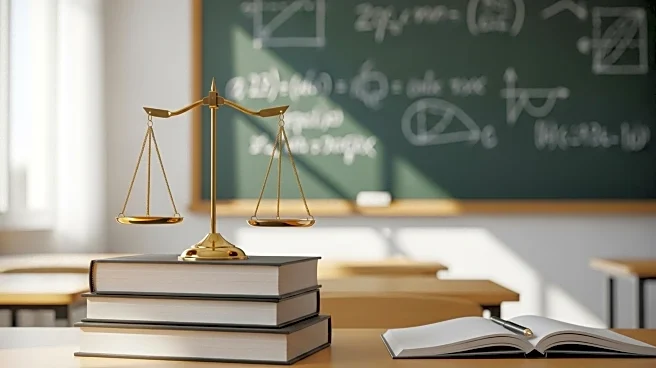What's Happening?
Educators are facing challenges in teaching civics amid a politically charged environment. The U.S. Department of Education has unveiled plans to promote 'patriotic education,' emphasizing the nation's founding ideals. However, educators express concerns about discussing controversial topics due to laws restricting discussions on race, gender, and other divisive concepts. A survey of veteran teachers revealed that many have self-censored or avoided certain topics due to fear of controversy. Educators are encouraged to teach civics by fostering critical thinking and respectful conversations, despite the challenges posed by current political dynamics.
Why It's Important?
Civics education is crucial for preparing students to be engaged citizens, but the current political climate poses challenges for educators. Restrictions on discussing certain topics can hinder students' ability to think critically and engage in civil discourse. The emphasis on 'patriotic education' may influence how civics is taught, potentially impacting students' understanding of the nation's history and ideals. The expansion of civics education in states like Indiana highlights efforts to enhance civic literacy, but the approach varies across regions, reflecting differing political and educational priorities.
What's Next?
As the U.S. approaches its 250th birthday, civics education will likely remain a focus for policymakers. The U.S. Department of Education has launched the America 250 Civics Coalition to engage students in civics education. Educators are encouraged to create environments where students can ask questions and wrestle with ideas, fostering critical thinking rather than dictating what to think. The ongoing debate over civics education may lead to further policy developments and adjustments in teaching strategies.
Beyond the Headlines
The challenges in teaching civics reflect broader societal issues, including political polarization and the role of education in shaping civic engagement. The emphasis on 'patriotic education' raises questions about the balance between fostering national pride and encouraging critical analysis of historical and contemporary issues. Educators play a key role in modeling respectful discourse, which is essential for maintaining a healthy democratic society.









